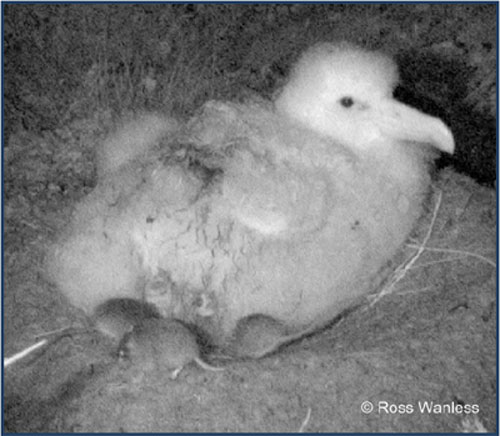It is now well known that the introduced House Mouse Mus musculus on Gough Island in the South Atlantic's Tristan da Cunha Group, is driving the near-endemic and Critically Endangered Tristan Albatross Diomedea dabbenena towards extinction - by active predation of post-guard downy chicks during the winter months when their normal food supply of invertebrates and plant fruits and seeds becomes scarce (see earlier ACAP news items by searching on "Tristan Albatross"). The Royal Society for the Protection of Birds (RSPB) commissioned a feasibility study for the eradication of Gough's mice by John Parkes, a vertebrate eradication expert working with New Zealand's Landcare Research, with the support of the United Kingdom's Overseas Territories Environment Programme (OTEP) . His study (Parkes 2008), based on a site visit in September/October 2007, is now available (click here). For RSPB reports dealing with the effects of rodents in the Tristan da Cunha Group, and efforts towards their eradication click here. With new OTEP funding, in September this year two researchers will be placed on the island by the RSPB for 13 months, to continue the work recommended by John Parkes' study before an eradication exercise take place. Their work will include looking at aspects of protecting the two endemic terrestrial birds (the Gough Bunting and the flightless Gough Moorhen) from non-target poisoning (see project summary). Reference PARKES, J. 2008. A Feasibility Study for the Eradication of House Mice from Gough Island. RSPB Research Report No. 34. Sandy: Royal Society for the Protection of Birds. 52 pp. John Cooper ACAP Information Officer, posted 18 August 2009

 Français
Français  English
English  Español
Español